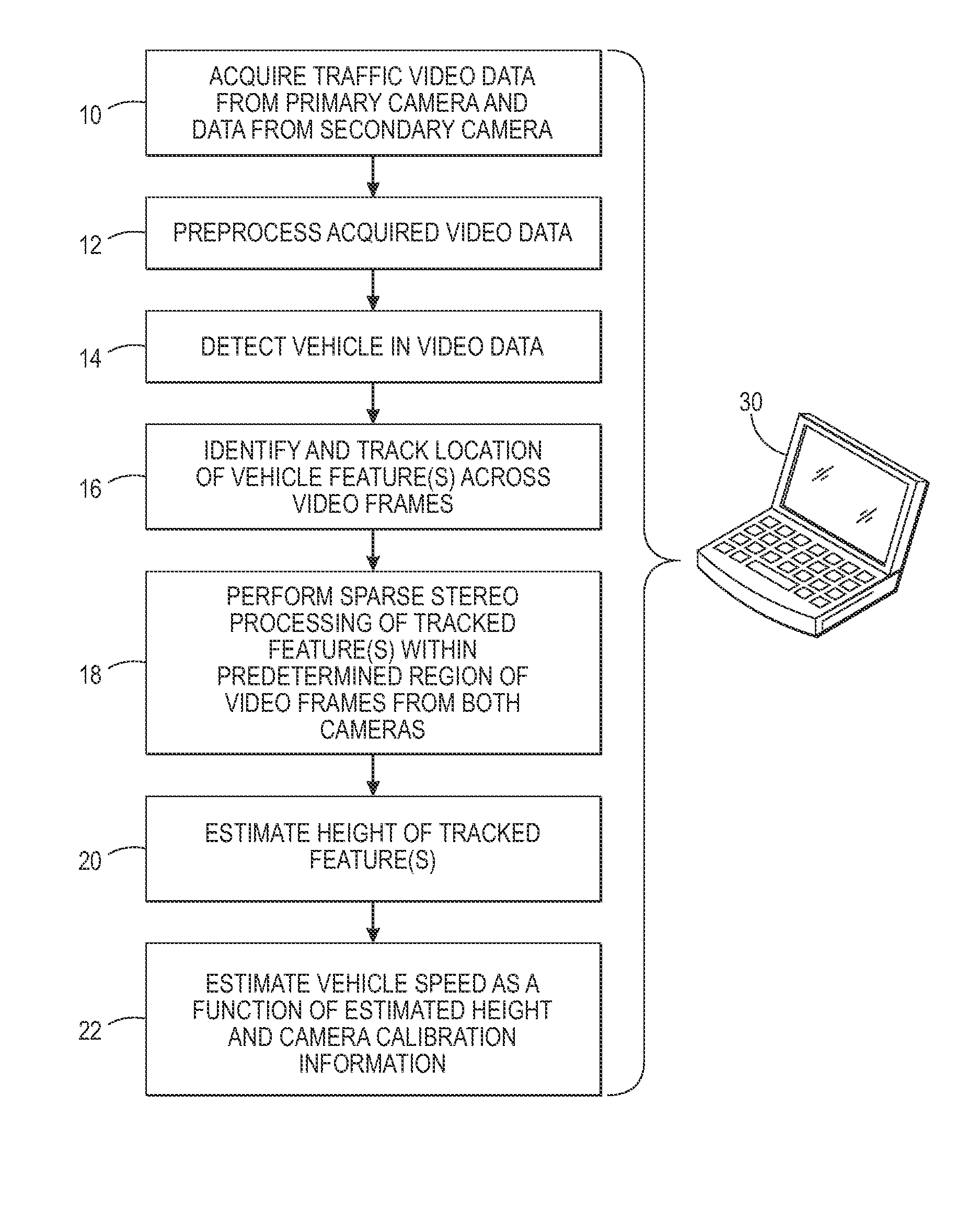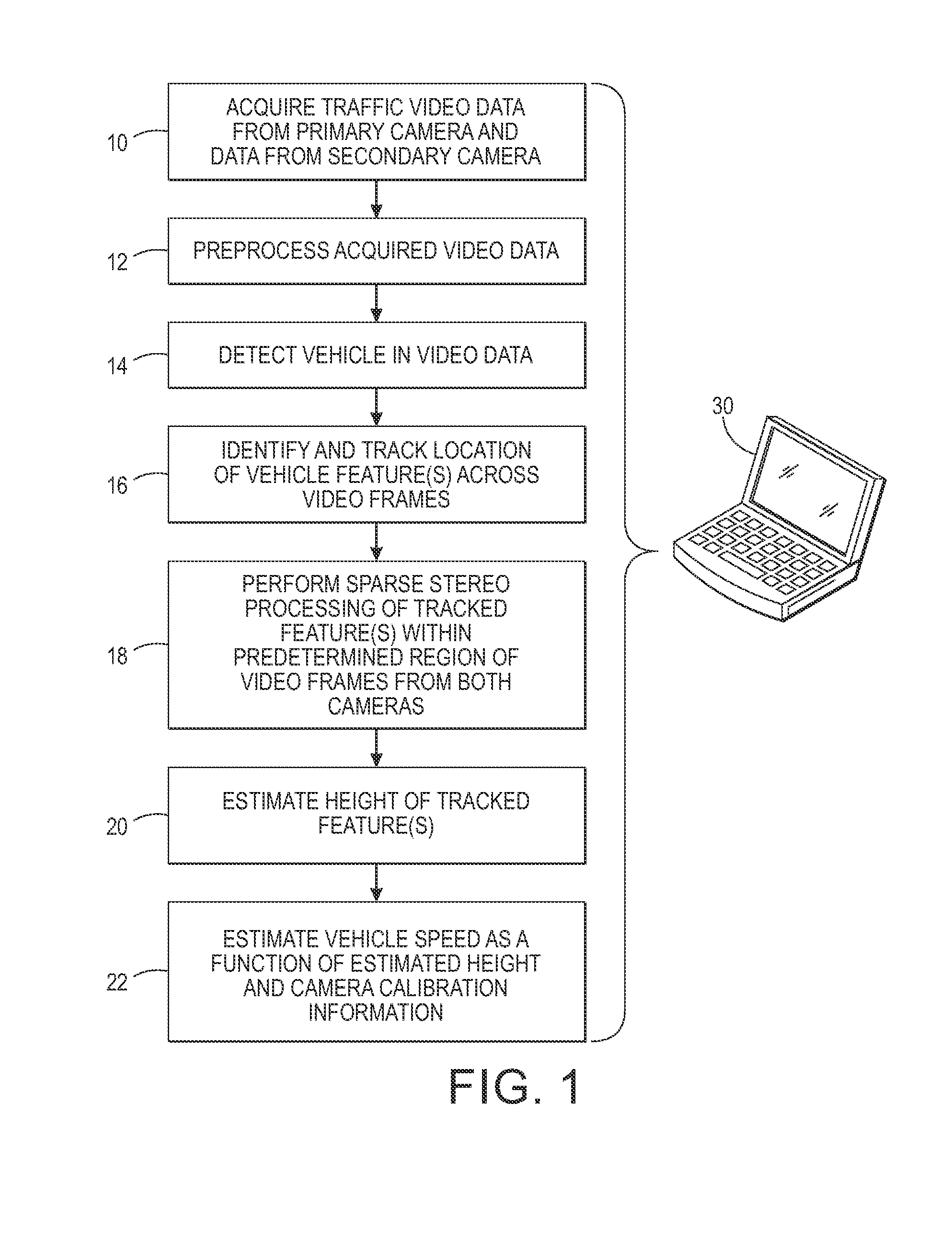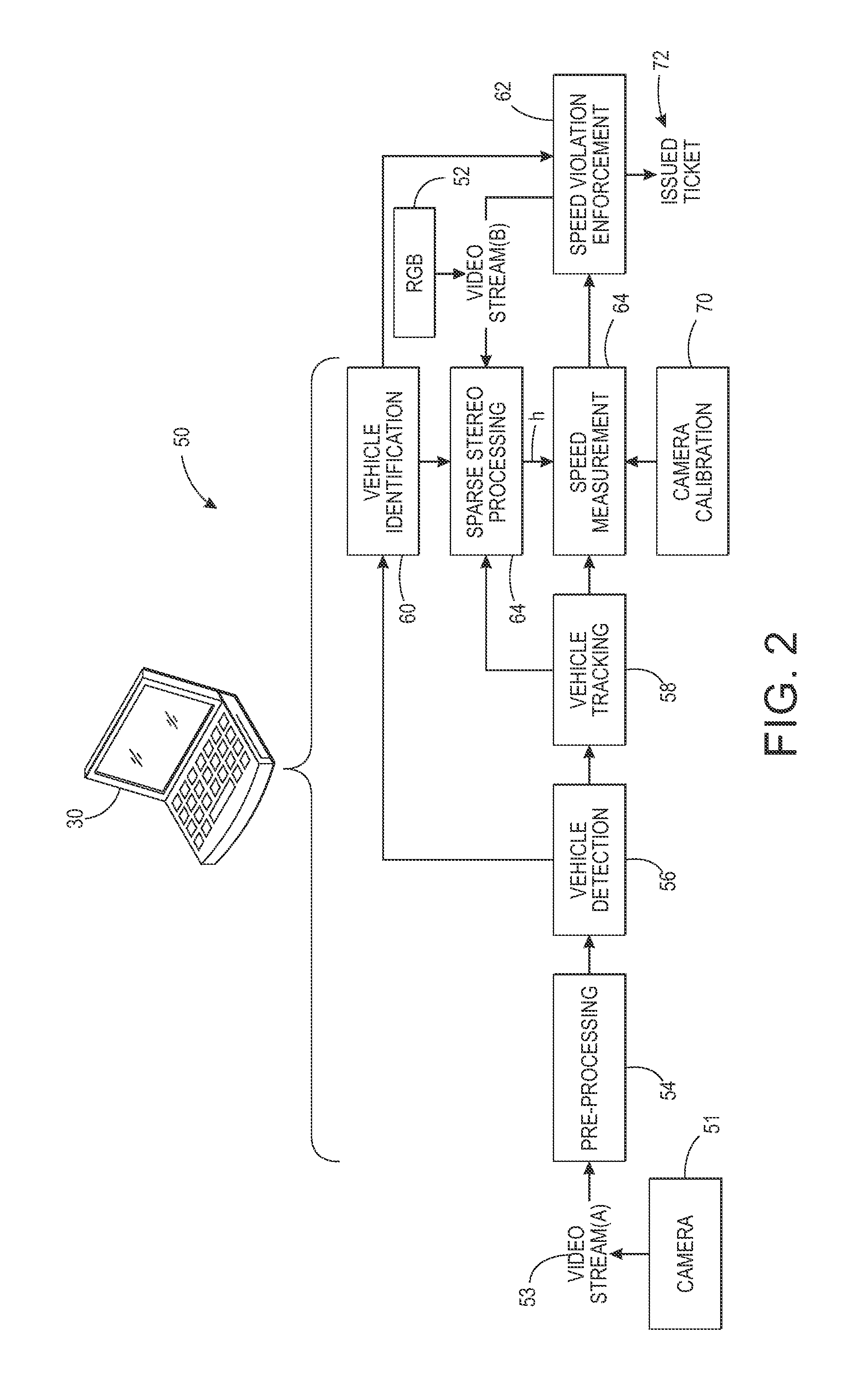Single camera video-based speed enforcement system with a secondary auxiliary RGB traffic camera
a technology of video-based speed enforcement and traffic cameras, applied in closed circuit television systems, television systems, instruments, etc., can solve the problems of large estimation error of systems with such wide fov in speed estimation tasks, limited ability of conventional single camera systems to accurately detect vehicle speed, etc., and achieve the effect of facilitating video-based speed estimation
- Summary
- Abstract
- Description
- Claims
- Application Information
AI Technical Summary
Benefits of technology
Problems solved by technology
Method used
Image
Examples
Embodiment Construction
[0015]The above-described problem is solved by providing a video-based speed enforcement system that utilizes a main camera and a secondary traffic camera, such as a low-cost red-green-blue (RGB) camera. The described systems and methods provide improved accuracy of speed measurement and improved evidentiary photo quality compared to single camera approaches. The use of an RGB traffic camera mitigates the cost associated with a conventional stereo camera since the conventional approach requires two identical expensive primary cameras, rather than one primary and one low-cost secondary camera as proposed herein. There is also a greatly reduced computational requirement compared to conventional stereo video, which is a significant benefit in the transportation industry due to a need for real-time processing and high data rates. By using secondary video, spatio-temporally sparse stereo processing is enabled specifically for estimating the height of a vehicle feature above the road surf...
PUM
 Login to View More
Login to View More Abstract
Description
Claims
Application Information
 Login to View More
Login to View More - R&D
- Intellectual Property
- Life Sciences
- Materials
- Tech Scout
- Unparalleled Data Quality
- Higher Quality Content
- 60% Fewer Hallucinations
Browse by: Latest US Patents, China's latest patents, Technical Efficacy Thesaurus, Application Domain, Technology Topic, Popular Technical Reports.
© 2025 PatSnap. All rights reserved.Legal|Privacy policy|Modern Slavery Act Transparency Statement|Sitemap|About US| Contact US: help@patsnap.com



